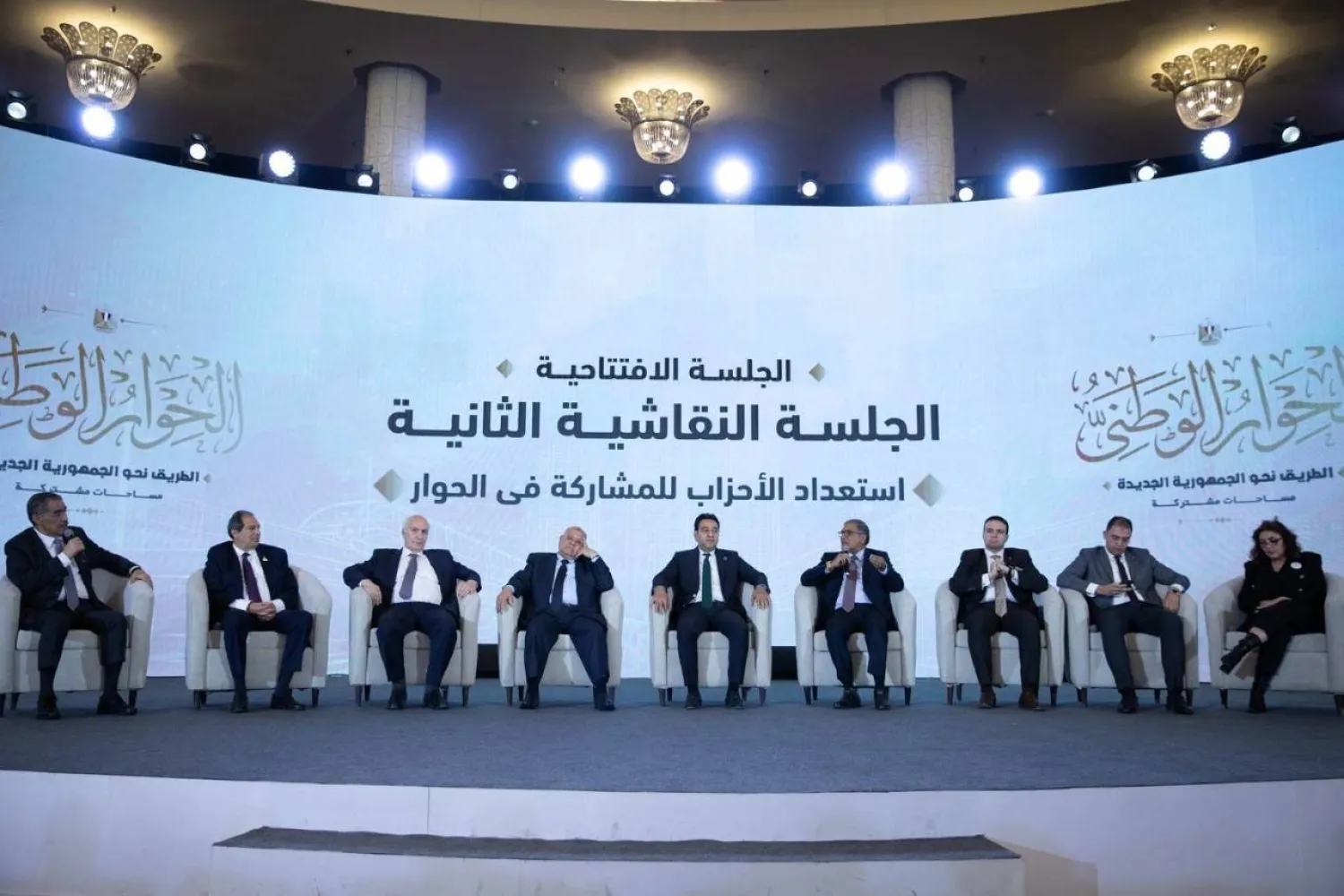The Board of Trustees of the National Dialogue in Egypt announced a schedule for the discussion sessions of its specialized committees, which would begin early next week.
The Board of Trustees held its twenty-fourth session at the headquarters of the National Training Academy, which will later host the meetings of the committees.
The Board scheduled public discussions Sunday, Tuesday, and Thursday at the Cairo International Convention Center in Nasr City.
It also agreed to consider holding up to four sessions per day, each for three hours.
According to the schedule, the political track will hold four sessions on Sunday to discuss the parliamentary electoral system, eliminating all forms of discrimination, and the challenges facing cooperatives.
The economic track will be held on Tuesday to discuss social protection programs, formulating Egypt’s tourist map, and means of stimulating all forms of tourism investments. While the social track’s session will be on Thursday, focusing on guardianship and national identity issues.
After its meeting, the Board issued a statement expressing its full confidence in the support of all parties and stakeholders in the country for the national dialogue.
The statement hoped all parties would give the dialogue an appropriate and reasonable opportunity and time.
The Board called on the parties to continue their positive efforts toward creating a democratic atmosphere for multi-candidate presidential elections.
It hailed the decisions of President Abdel Fattah El-Sisi, using his constitutional powers, to pardon more prisoners, calling on the Presidential Pardon Committee to intensify its legal efforts to release those who are still being held in detention without trial.
Meanwhile, several figures of the Civil Movement did not attend the meeting. Asharq Al-Awsat reached out to leaders of the movement, who refrained from commenting on their participation in the sessions.
The movement, which includes 12 opposition parties and ten public figures, hinted at the possibility of not continuing the dialogue after authorities arrested and imprisoned relatives and supporters of former lawmaker Ahmed Tantawi.
Tantawi said in March that he would run for president in the 2024 elections.
The statement confirmed that the movement, which participated in the opening session of the National Dialogue last Wednesday, recalled that the success of the dialogue and its participation depends on providing the appropriate atmosphere and ensuring the security and safety of all participants.
The statement indicated that the movement would exercise maximum restraint, reaffirming that continuing in this atmosphere is extremely difficult.
Sisi called for the National Dialogue last April to discuss various issues. The Board of Trustees of the Dialogue included public and opposition figures and academics.
Prime Minister Mostafa Madbouly attended the opening session last Wednesday with several ministers, ambassadors, heads of political parties, lawmakers, and media and public figures.









